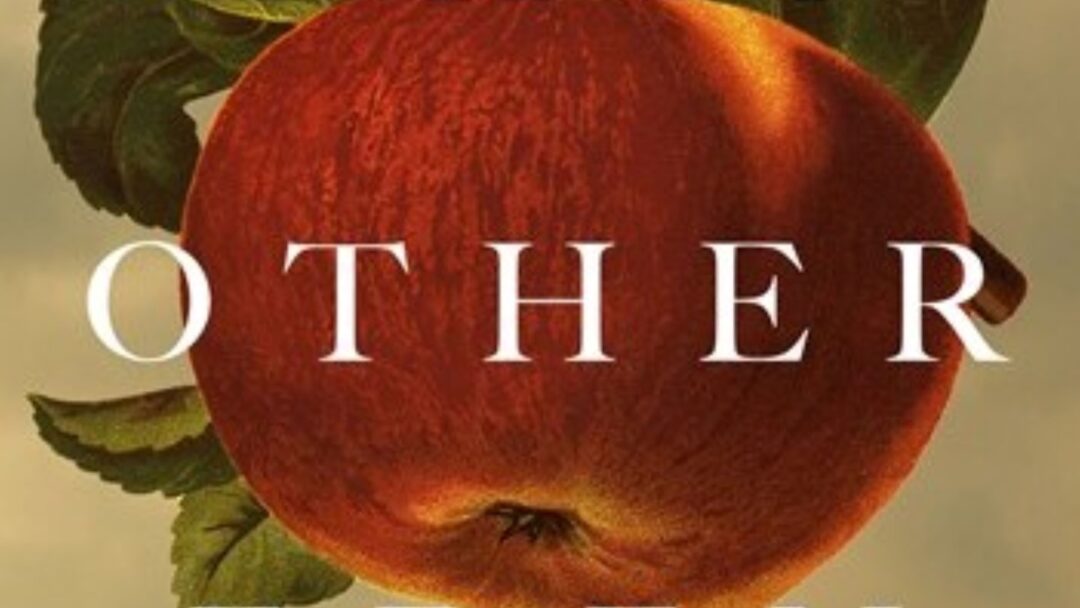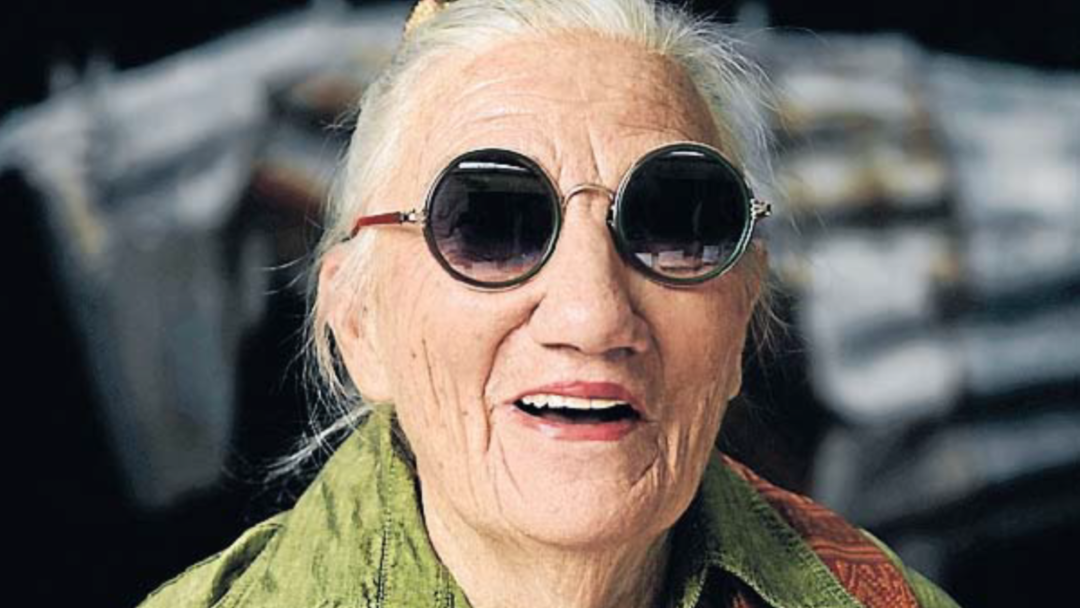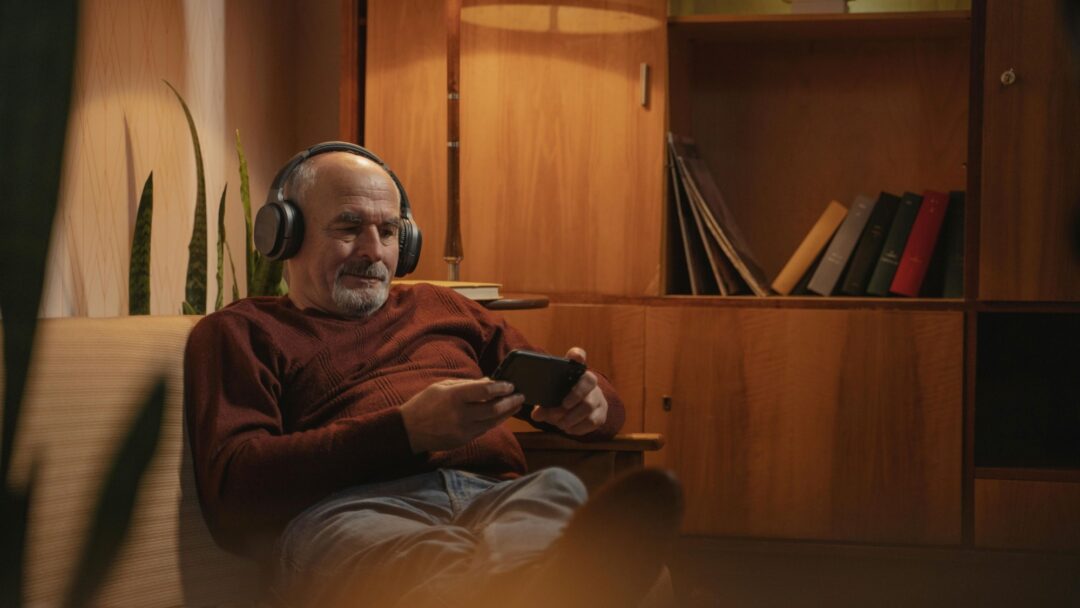Audio
Julian Assange - by the man himself
Hear This by
Vision Australia3 seasons
28 June 2024
29 mins
New books in Vision Library including the Wikileaks founder's autobiography.

Hear This is a weekly presentation from the Vision Australia Library service, bringing you up to date with what’s on offer for people who are blind or have low vision. Host Frances Keyland presents reviews, spoken excerpts and Reader Recommends.
In this episode, new books include an autobiography by the recently freed Wikileaks founder Julian Assange.
00:09 UU (Program theme)
Take a look. You take a look inside the book. Take a look. You.
00:24 S1
Hello and welcome to Hear This. I'm Frances Keyland - and you're listening to the Vision Australia Library radio show, where we talk about books in the Vision Australia collection. Today we've got... mainly new books. Well, I think they're all books that are new to the collection, apart from one about Julian Assange. So I do hope you enjoy the show.
Vision Australia Radio's end of financial year appeal ends this week, and we need your support to keep our Community Radio network on air, online and on podcast. So we're asking for donations. Each week. Over 500 volunteers work hard to keep our 17 free radio reading services live to air, but we can't do it without your generous support. We're a long way off reaching our modest donation target of 50,000 during June. Please consider giving to our appeal today. Vision Australia Radio's operational costs exceed $2.1 million a year. Our sponsors and grants only cover part of our unavoidable expenses. Australia's blind, low vision and print disability community are relying on us to keep Vision Australia radio broadcasting. Donations of $2 or more are tax deductible and every bit helps. Call one 308 4746 that number again one 308 4746 or visit VA radio. Org to support us today. Thank you to all of those who have already supported us. You're very valued.
Let's start off today with a book by the man whose name is on everybody's lips, Julian Assange. And this novel is called Julian Assange - by the man himself. In December 2010, in the midst of a battle against allegations concerning his personal life and with the angry denunciations of American politicians ringing in his ears in the wake of the US embassy cable releases, Julian Assange began writing the story of his life. What took shape over months of effort is a book that describes not only the work of Wikileaks, but the moral and political developments of its founder from his childhood and teenage years in Australia through travels in Europe, Asia and Africa right up to the present day. Although the publication of this autobiography has occurred in controversial circumstances, the result is nonetheless a book that burns with passion and anger, an essential book for our time, and a meditation on the meaning of disclosure itself.
Let's hear a sample of Julian Assange by Julian Assange. It's narrated by Paul Begala.
03:07 S2
The computers back then came with nothing. They had no programs of their own. That's one of the things lost to the new generation of kids coming to their first computer. They are preloaded now with all sorts of software and fancy graphics and so on. But when I started, you were just one layer above the bare metal. You were typing into this wonderful emptiness waiting to be populated with mines. The thing was programmed to accept your typing and that was it. As teenagers, we went into that space exactly like explorers seeking to discover new terrain. Just like in mathematics, where there is the atomic realm. The computer had a space and a set of possible laws that could be discovered gradually. All laws and modes of operation and side effects were to be freshly discovered.
And that is what we did. The excitement was barely containable in that within minutes you could learn to do something on your computer that was infinite. You could train your computer to type the words hello there to infinity, a command that would never end. And for a young person to discover that kind of deep power is, at the very least, thrilling and at most revolutionary. Your thoughts had to be clear, though, the computer was not going to do your thinking for you. It was the difference between saying I want the computer to count and saying, this is how to count. As teenage computer nerds, we got into the business of precise instruction. School didn't teach us that. Our parents didn't teach us that we discovered it for ourselves while getting to know the life of the computer.
There were guys, of course, who just wanted to play games, and that was fine. But a few of us were interested in projecting our thoughts into the computer to make it do something new. We began writing codes and we began cracking them too.
04:55 S1
And that was Julian Assange. By Julian. And Julian is spelled [spells the name]. And that book goes for 9.5 hours. This isn't a new book, of course. It was published back in 2011, so there'd probably be a lot more to update for him. There's also a book by Andrew Fowler in the collection. It's also published in 2011 called The Most Dangerous Man in the World The Inside Story on Julian Assange and Wikileaks. And I don't have a sample but a little bit of information about Andrew Fowler.
Andrew Fowler was born in Australia. He's an Australian TV reporter, author and journalist, and he specialises in human rights and national security issues, it says here in Wikipedia, Fowler is critical of the rising power of executive government. He sees the prosecution of Julian Assange as a political attack on journalism, and an attempt to intimidate all journalists from their central role of holding governments to account. He was in South Africa in 1993 to report on South Africa's transition to democracy. After the release of Nelson Mandela in 2002, Fowler was appointed head of the ABC's Investigative Unit, but he left the ABC finally in 2013. But he's still very active and writing and being interviewed about journalism and current affairs.
And some of the other books published have been, The War on Journalism, Media Moguls, whistleblowers and the Price of Freedom that was published in 2015. Shooting the Messenger. Criminalising Journalism, Secret Australia. This was published by Monash University Publishing in 2020, and he's a contributor. So there's various, um, people writing in that. The Most Dangerous Man in the world was republished in 2020, and he's also a contributor to The Journalism Ethics Handbook, published in 2021 and 2015. He did win the Walkley Book Award finalist for The War on Journalism. So none of the other books are in the collection, but The Most Dangerous Man in the world is. So, that's one that you may enjoy as well.
Keeping on the theme of journalists investigating and writing books, we also have My Year of Living Mindfully by Shannon Harvey, overwhelmed with insomnia and an incurable autoimmune disease, Shannon Harvey needed to make a change. But while the award winning health journalist found plenty of recommendations on on diet, sleep and exercise when she looked for the equivalent of a 30 minute workout for her mental well-being, there was nothing. Also worried for the future mental health of her kids, who were growing up amidst critical levels of stress, anxiety, depression and addiction, Shannon enlisted a team of scientists to put meditation to the test. Could learning to quiet our busy minds be the simple solution the world so desperately needs?
During her year of living mindfully, Shannon is poked, prodded, scanned and screened after a 30,000 kilometre journey from Australia to the bright lights of Manhattan and the dusty refugee camps of the Middle East, interviewing the world's leading mindfulness experts along the way. What begins as a quest for answers transforms into a life changing experience. Let's have a listen to My Year of Living Mindfully by Shannon Harvey. It's narrated by the author, Shannon Harvey.
08:26 S3
In my student days at the University of Technology in Sydney, UTS, my journalism professor, Peter Manning used to say that being a good investigative journalist meant carrying out in-depth, multifaceted explorations of complex issues in their real life settings and then presenting the stories, though the whole endeavor were a piece of cake. As someone who naturally loved asking questions and finding answers, who enjoyed the process of investigation just as much as the result, and someone who valued truth and fairness. I was hooked. I don't know how this particular investigative deep dive will turn out, but my foray into the mind the hype discussion tells me that the science component may not be the signature ingredient after all.
I've decided to go back to journalism 101, which means that in addition to continuing to delve into the research, interviewing people, and maintaining my own meditation practice, I also need to find some case studies. Case studies are often dismissed as anecdotal, but historically they've played an important role in psychological research, clinical medicine, and scientific breakthroughs. Although findings on a single case study cannot be generalized, they nevertheless provide an up close, in-depth and detailed investigation of a subject in a real life context, and this is an invaluable tool for either supporting or disproving burgeoning theories and for framing questions for more rigorously designed clinical studies.
Just as Josef Breuer and Sigmund Freud laid the foundations for psychoanalysis when they documented their experimental treatments of Anna O. And just as physician and vaccination pioneer Edward Jenner proved the ability to vaccinate against smallpox by demonstrating its effectiveness in an eight year old boy, I'm now wondering if there are any mindfulness equivalents.
10:39 S1
And that was my Year of Living Mindfully by Shannon Harvey. Shannon is spelt [spells name]. And that book goes for seven hours. This book was published in 2022 and Shannon has her own website, shannon harvey.com. She says, I'm a journalist on a mission to elevate necessary conversations about health and well-being to the forefront of public conversation. I believe that great stories can be the heartbeat of a movement to change minds, change lives, and change policy. Here you'll find my interviews with the leading experts, compelling true stories, and in-depth reporting on the science backed solutions that can turn the tide on the epidemic of preventable, preventable chronic disease. So again, that's on her website. So there's podcasts on there, a whole lot of information. So Shannon, Shannon Heavy.com.
The next book is also nonfiction, and it's written by... somebody who's a familiar face on our televisions. He played Molly Meldrum in the, in the series Molly. He was one of the many stars in the ensemble cast of The Secret Life of Us. It's Samuel Johnson. He penned the book Love Your Sister. His sister Connie passed away from terminal breast cancer in 2017, but before she died in 2013, Johnson began writing 15,000km on a unicycle in a year long attempt to break the Guinness World Record and raise $1 million for the Garvan Institute of Medical Research to find a cure for breast cancer. So that book, Love Your Sister, narrated by Samuel Johnson, is in the library. But this is a later book. It's called Heroes Next Door, and it's by Samuel Johnson with another one of his sisters, Hilda Hilton. It's also about his adventures on the unicycle.
So when Samuel Johnson Uni cycled around Australia, he met some awesome people and before we had to lock down, he and his other sister Hilda were travelling the country, talking at schools, community groups and at the side of busy streets to spread their message about how to kick cancer in the a hole. But in the process, they connected and listened as people shared their own stories, not just about how cancer impacted them, but about love. Fighting fires, making families out of choice, not blood knitting, being there and being surprised by life and finding solace from strangers. They decided those stories should be shared and the idea for Heroes Next Door was born. Let's hear a sample of Heroes Next Door by Samuel Johnson and Hilda Hilton. It's narrated by Samuel Johnson.
13:18 S4
Platform one. Sharon started on the trams in Melbourne, but quickly found her calling as a train station host. Melbourne Metro Melbourne station platform one for 14 years. Sharon's job was to curate the best possible experience for peak hour commuters, to help any of them in any given way, at any given time. This suited Sharon perfectly as the job required her simply to be herself. She was a bona fide helper years before the job emerged In the interview for the position, her passion for helping others was obvious, and she was promptly hired because you can't fake generosity of spirit.
Platform one became home for Sharon. Every morning, she'd colorfully decorate her blackboard to greet incoming commuters. It always came with a quote of the day a weather report, sometimes a drawing, a joke or a cheerful pattern. Always different. Every morning she'd post a pic of her board on social media, where she became quickly and roundly adored. She personified community and was duly lauded. Sharon knew all her commuters on a first name basis, and they all knew hers. In the winter, she'd raid the lemon trees near the station and hand them out to commuters to put in their tea if they were sniffly. she hoarded and rehomed all the lost brollies. Sharon, in her own time, put together the ultimate travel pack for foreign or interstate visitors and always had them at the ready.
She was known for being of expert assistance to the elderly, infirm and disabled. She would bring in home baked treats to share and I became a bit fashionable. More and more commuters started bringing food to share from home. Sharon was constantly being invited to dinners and parties, and she never stopped feeling surprised at how willing her commuters were to share every intimate detail about their lives.
15:13 S1
And that was a sample of Heroes Next Door by Samuel Johnson. Samuel is [spells name]. Written in conjunction with his sister Hilda Hilton, and that book is a short one - goes for 4.5 hours.
And to our fourth non-fiction book, today. This is an autobiography, The Strong Man, by Grant Edwards. Grant Edwards was once an elite athlete, Olympics qualifier and Australia's strongest man. His Guinness Book of Records feats of strength were acclaimed internationally, and as a high ranking police officer, he spent decades protecting vulnerable people around the world. But nothing could shield him from catastrophic harm in the line of duty. Rising above his tough beginnings in 1970s suburbia, where he was bullied for his father's decision to live as a gay man.
Edwards found sanctuary in sport, but he found his true calling with the Australian Federal Police, rising swiftly through the ranks to commander and personally establishing cybercrime units to fight child exploitation and human trafficking. A highly sought after and disciplined security advisor for governments around the world such as East Timor, Afghanistan and the Americas, Edwards was considered the last person to, in inverted commas, crack, but a narrow escape from a deadly attack in Kabul pushed him to breaking point. This is the story of an extraordinary man and his extraordinary battle back from the brink. This book is narrated by Grant Edwards.
16:50 S5
The last place I expected to find myself when I joined the AFP was sheltering in a rat infested bunker in Afghanistan with my colleague John Ben Cartwright, as the Taliban launched an assault on the Green Village, our compound in Kabul. The village accommodated almost 2000 contractors, NGOs and an international police force, of which I was the second in command. I'd almost completed my year long mission with the AFP's contingent of officers doing our best to shape the Afghan police force into a professional and modern unit capable of maintaining law and order in one of the world's most dangerous places.
When two suicide bombers signaled the beginning of the attack by blowing holes in the village's perimeter fence to provide their fellow insurgents with a staging post to storm our base. The insurgents quest was simple. They wanted to kill as many of the infidels as possible. And as I listened to the gunfire being exchanged between the Taliban and our security detail of battle hardened Gurkha veterans. I kept my Glock 22 service pistol trained on the door and took deep breaths to remain calm, terrified by the image that had formed in my mind of members of the Taliban kicking it open with their guns blazing. I'd arrived in Afghanistan in 2013, aware of the dangers, but as I crouched in that bunker, gripping my Glock for dear life, it dawned on me that during my then 30 years in uniform, this was the first time I'd had to prepare myself for a possible shoot to kill scenario.
Amid the background explosions, machine gun fire, and the incessant wailing of the siren that let the villagers multinational inhabitants know we were under attack, I can vividly recall thinking to myself, this can't be happening. But if my childhood embraced me for anything in life, he was this abnormal. His normal.
18:41 S1
And that was The Strong Man by Grant Edwards. Grant is Grant. Grant Edwards is Edwards. Edwards. That book goes for 11 hours and 45 minutes, and it's a bit of a warning there. If you didn't pick it up in the synopsis that there are some issues that are dealt with in this book that are fairly harrowing.
Now, on to some fiction. And one of our favorite genres here at the library is crime and detective fiction. And there's a new series of books that have been added to the library. Recently there by an author, Archer Mayer. And they're the Joe Gunther series now. So they've just been added to the library. But the first book of, um, the author, Archie Mayer, was published in 1988, and it's open season. Lieutenant Joe Gunther of the Brattleboro, Vermont Police Force has a serious problem in a community where a decade could pass without a single murder. The body count is suddenly mounting. Let's hear a sample of Archie Mayer's first book in the Gunther series, Open Season. It's narrated by Tom Taylorson.
19:52 S6
You don't get many killings in a town the size of Brattleboro. In ten years, we'd had four, and for some reason they'd all been clumped together. The last of them had been about three years ago. I placed both hands against the roof behind my head and arched my back in a stretch. The car's heater was making me drowsy. I rolled the window down a crack and watched the run down building slide by in the reflection off the glass. I noticed Smith turn his head to glance at me, lit only by the car's green panel lights. His face had a ghostly, dream like translucence, as if he like the pajamas I wore under my clothes had been part of my sleep only ten minutes earlier.
Did you have a nice Christmas, Lieutenant? Not bad. Me too. I went back home. Expensive, but the wife and I thought it would feel strange having Christmas here. I couldn't think of anything stranger than Christmas in Florida. We drove beyond the hospital and turned left onto Clark Avenue. I head halfway down the block. Two cruisers and an ambulance blocked the road. They're sparkling colored lights imitating some cockeyed Christmas scene. I noticed discreet lights on in several neighboring houses. It was 3:48 a.m.. I slid out of the car's warm cocoon and stood in the snow for a moment, watching. Smith returned to Canal Street. His rear lights glowed fiercely just before he got to the corner and cautiously swung right.
The day despite the darkness had begun. I looked over to the House. By New England standards, it was not old, maybe built in the 40s, but it looked ancient. Its skin was peeling and blotched with rot. The roof line, mercifully covered with snow, sagged in the middle like a swayback horse.
21:46 S1
And that was a symbol of open season by Archer Mayor. Archer is spelled [spells name]. And there are many, many, many in the collection. He's written 33 altogether, and I'm just looking at the catalog as we as I speak, I can see Proof Positive. Number 25, 26, 2526 3130. Yep. So I think they're all here in the collection. And you can tell when a character, and in this case it's Joe Gunther is popular when they have their own Wikipedia entry. Joe Gunther is the hero of Archer Mair's long running mystery novel series, set largely in Vermont. The detective is born about 1933. He fought in the Korean War, then went to college in Berkeley and eventually joined the Brattleboro Police Department as a street patrolman.
At the time of the events depicted in the first book in the series, 1988. Gunther is the second most senior detective in the Brattleboro PD with 30 years of experience. He has a younger brother, Leo, who still lives in Thetford with their elderly mother. As of the events of Surrogate Thief, a book from 2004 Will tell, and the author himself. Archer Mair, a former detective, an EMT, emergency worker, firefighter, and ski patroller. He's currently a death investigator for Vermont's Office of the Chief Medical Examiner. He loosely bases his highly acclaimed crime series featuring Detective Joe Gunther on field experience. The Chicago Tribune describes his novels as the best police procedurals written in America.
So if you like the, um, the mysteries of, um, Louise Penny, you may enjoy Archer Mair, similar feeling and a really intriguing, likable and a bit overweight with gray hair. Detective there. And Archer Mair has a website, Archer Match.com, and, there's frequently asked questions. And one of them says, are your characters based on real people? And he said, no. Although I will sometimes use the names of real people, either with their permission or at their urging. Thus, my children have appeared, as have other family members, along with a host of friends, but never as themselves, and he puts in brackets. All right. Well, almost never.
As things stand in the series, I use real settings, actual police procedures, proven scientific techniques, leaving less room for creativity so the plots and characters supply me with that. They allow me the space to fictionalise, and I had a bit of a listen to the beginning of open season and kind of listened on and off, just scanned through. I don't think they have levels or high levels of swearing or high levels of violence. They're character driven police procedurals.
Now, one of the most popular authors in the library is Fleur MacDonald, and there is a new Fleur MacDonald book just added to the collection. It is shock waves. Detective Dave Burrows has longed for the top job in the stock Squad, but never thought he'd be acting in that role. While his partner and best mate, detective Bob Holden, is treated for melanoma. Bob is keen to get back on the road and Dave can't wait to go Bush either. Expecting the trip will be much the same as usual, but the trip doesn't play out that way. Multiple bomb blasts in the small country town of Kalgan send shockwaves through the state of WA, and Dave and Bob are once again drawn into the underworld of crime. Let's hear a sample of Shock Waves by Fleur MacDonald and it's narrated by Lani Tupu.
25:24 S7
I've written all the instructions out clearly, so you shouldn't have any issues. But he said he's got to take tablets at breakfast, lunch and before bed. Some he has to take with food. Please make sure he doesn't miss any of them. Dave. Betty's voice trailed off, but she came back strongly. I know he's got his watch alarm set in case he gets busy during the day, so he shouldn't miss the timing. No worries Betty. Dave checked inside the bag, glimpsing the handwritten instructions, and if he gets a temperature or starts to feel even the slightest bit unwell, you'll have to bring him back to Perth Dave immediately. Not tomorrow or the day after, like yesterday.
His stomach sank a little. What does it mean if he gets a temperature? He'll have an infection somewhere. The chemo decreases his immune system and makes it harder for him to fight anything off. If the doctors don't get on top of it right away, then there could be consequences. Betty looked down. Right. Dave wished he'd taken a bit more notice when Beck and Alice had been sick. He could remember something about Panadol and Melinda saying it helped to bring the spikes down, but it wasn't a medicine he'd ever administered. Betty was watching him closely, her face showing her misgivings. He couldn't let her change her mind now.
Straightening quickly, he placed the bag of Millicent carefully on the back seat and smiled over at her. Not a problem. I'll look after him, Betty. He made his voice convincing. Betty shifted from one foot to the other, and Dave suspected she was trying to work out if he was up to the task. I'm sure there won't be any problems, Dave continued. But how about I send you a text every night we're away. Then you'll know how Bob is, and if I've got any questions, you can answer them. Does that sound okay?
27:27 S1
And that was Shockwaves by Fleur MacDonald. Don't like it when series do this. It says position in the series is 9.5, which possibly means that it's not going to be resolved. I'm not sure. In this particular book. And there's another, another part to come. Uh, the book goes for nine hours. Fleur is spelt [spells name]. This book is really recent. It was published in April 2024 and you can find out more from fleurmacdonald.com. And if you borrow the book, let the library know whether or not it does finish seeing it's part of the series 9.5, whether it does finish satisfactorily, or whether it finishes on a bit of a cliffhanger there.
Thank you for joining us on here this today. I'm Frances Keyland and I hope you enjoyed selection of books. If you would like to borrow any of the books or find out how to join the library, become part of the Library and Vision Australia radio community, give us a call on 1300 654 656. That's 1300 654 656. Or you can email library@visionaustralia.org - that's library at Vision Australia dot org. Have a lovely week and we'll be back next week with more Hear This.
Continue listening

On Hear This, latest books in the Vision Australia library. This edition, award-winning Oz fiction.
Australian fiction
Hear This by Vision Australia
4/8/2023
•28 mins
Audio

Books from the Vision Australia library - this episode featuring memoirs and family histories.
Family histories
Hear This by Vision Australia
11/8/2023
•27 mins
Audio

This edition: Michael Parkinson remembered and an assortment of latest books from the Vision Australia library.
Vale Michael Parkinson
Hear This by Vision Australia
18/8/2023
•26 mins
Audio

Hear This reviews latest books from Vision Australia library - this edition starting with two Booker Prize aspirants.
Booker Prize hopefuls
Hear This by Vision Australia
25/8/2023
•27 mins
Audio

Hear This interviews Tracey Chevalier, author of Girl with a Pearl Earring.
Girl with a Pearl Earring
Hear This by Vision Australia
8/9/2023
•28 mins
Audio

Hear This samples a variety of audio books from the Vision Australia library.
Top picks from audio books
Hear This by Vision Australia
15/9/2023
•28 mins
Audio

Events and activities at Vision Australia library - and latest picks from its books.
Community engagement
Hear This by Vision Australia
22/9/2023
•27 mins
Audio

This edition of Hear This from the Vision Australia library opens with a discussion of banned books.
Banned books
Hear This by Vision Australia
6/10/2023
•28 mins
Audio

Hear This features latest books and events at the Vision Australia library.
Latest events and books
Hear This by Vision Australia
13/10/2023
•27 mins
Audio

Latest books from the Vision Australia library - including childhood tales and a John Grisham thriller.
Childhood tales and a Grisham thriller
Hear This by Vision Australia
20/10/2023
•28 mins
Audio

Latest books from the Vision Australia library - including a novel by Australian Sam Drummond.
Oz writer Sam Drummond
Hear This by Vision Australia
3/11/2023
•27 mins
Audio

Books from the Vision Australia library - including a memoir by a friend of Anne Frank.
Anne Frank's friend
Hear This by Vision Australia
10/11/2023
•28 mins
Audio

Book reviews and excerpts from Vision Australia library - including a wartime struggle for survival.
Survival in wartime
Hear This by Vision Australia
24 November 2023
•27 mins
Audio

A special seasonal edition reviews Christmas murder stories available from Vision Australia library.
Yuletide Homicide
Hear This by Vision Australia
8 December 2023
•28 mins
Audio

Veteran talking book reader Tony Porter reviews his many voices.
The many voices of Tony Porter
Hear This by Vision Australia
5 January 2024
•27 mins
Audio

What's new in Vision Australia library of Braille and audio books - including new Australian works.
New Australian books
Hear This by Vision Australia
12 January 2024
•28 mins
Audio

Vision Australia librarian talks of coming events and latest books for people with blindness and low vision.
Coming events and new books
Hear This by Vision Australia
26 January 2024
•28 mins
Audio

Review of books from the Vision Australia library - from a broad international range.
Books from Japan, US, Australia and Sweden
Hear This by Vision Australia
2 February 2024
•27 mins
Audio

New books in the Vision Australia library - from E.L.Doctorow to Alan Bennett.
Reasons Not to Worry, Wild Things... and Alan Bennett
Hear This by Vision Australia
9 February 2024
•28 mins
Audio

Latest events and books from Vision Australia Library, featuring its Community Engagement Co-ordinator.
Vision Library latest with Leeanne
Hear This by Vision Australia
16 February 2024
•28 mins
Audio

Features Jamie Kelly of Vision Australia Library, updating us on its website catalogue. And other new books.
Vision Australia library online, and Jelena Dokic
Hear This by Vision Australia
23 February 2024
•29 mins
Audio

New books in the Vision Australia Library - in this edition, books about paintings.
Books about paintings
Hear This by Vision Australia
1 March 2024
•26 mins
Audio

From the Vision Australia Library, women's memoirs on International Women's Day.
Women's memoirs on IWD
Hear This by Vision Australia
8 March 2024
•28 mins
Audio

Coming events and books at Vision Australia Library for people with blindness or low vision.
Coming events at Vision Library - and a Kerouac classic
Hear This by Vision Australia
15 March 2024
•29 mins
Audio

Latest books from Vision Australia Library - this week, some top Oz and worldwide novels.
Top Oz and world novels
Hear This by Vision Australia
29 March 2024
Audio

Coming events at Vision Australia Library in connection with the Melbourne Writers' Festival.
Melbourne Writers' Festival
Hear This by Vision Australia
5 April 2024
•28 mins
Audio

Coming events and new books at the Vision Australia Library for blind and low vision people.
Event update and more new books
Hear This by Vision Australia
12 April 2024
•29 mins
Audio

How printed works are brought to life as audio books in the Vision Australia Library.
Audio book narrators
Hear This by Vision Australia
19 April 2024
•28 mins
Audio

ANZAC Day edition of this series from the Vision Australia library for people with blindness or low vision.
ANZAC sniper
Hear This by Vision Australia
26 April 2024
•28 mins
Audio

From the Vision Australia library: a South African childhood, AI issues and an American First Lady.
Apartheid, AI and Michelle Obama
Hear This by Vision Australia
3 May 2024
•27 mins
Audio

Forthcoming Vision Library events including those connected with the Melbourne Writers' Festival.
Melbourne Writers' Festival and Vision Library events
Hear This by Vision Australia
10 May 2024
•28 mins
Audio

Murder mystery novels available from the Vision Australia library are reviewed and sampled.
Murder mysteries
Hear This by Vision Australia
24 May 2024
•27 mins
Audio

Celebrating National Reconciliation Week with books from Vision Australia Library... plus some user favourites.
Reconciliation Week and Reader Recommends
Hear This by Vision Australia
31 May 2024
•27 mins
Audio

Reader Recommends and crime fiction from the Vision Australia library for blind and low vision people.
This Other Eden... and some other readin'!
Hear This by Vision Australia
7 June 2024
•29 mins
Audio

Vision Library's coming community events and latest books for people with blindness or low vision.
Coming events and latest books
Hear This by Vision Australia
14 June 2024
•29 mins
Audio

Books in Vision Australia library for people with impaired vision - this time on the theme of Darkness.
Darkness
Hear This by Vision Australia
21 June 2024
•29 mins
Audio

New books in Vision Library including the Wikileaks founder's autobiography.
Julian Assange - by the man himself
Hear This by Vision Australia
28 June 2024
•29 mins
Audio

Community events soon to happen at Vision Australia Library for people with blindness and low vision.
Coming events at Vision Australia Library
Hear This by Vision Australia
5 July 2024
•28 mins
Audio

Two well-known authors open the latest look at new publications in the Vision Australia Library.
Hilary Mantel, Bret Easton Ellis and more
Hear This by Vision Australia
19 July 2024
•27 mins
Audio

Vision Library series, this episode features new Australian crime novels written by women.
Australian sisters in crime
Hear This by Vision Australia
26 July 2024
•28 mins
Audio

Latest publications in the Vision Library, starting with a biography of John Farnham.
He's the Voice
Hear This by Vision Australia
2 August 2024
•27 mins
Audio

Latest reviews and readings from publications in the Vision Library for people with print disabilities.
Race, history and Black Ducks
Hear This by Vision Australia
9 August
•28 mins
Audio

Books from Vision Library reviewed include a Julie Andrews memoir, Guardian newspaper picks and more.
Julie remembers and The Guardian recommends
Hear This by Vision Australia
30 August 2024
•27 mins
Audio

An Australian author discusses her works, plus reviews of other books in the Vision Library.
Jane Rawson - author
Hear This by Vision Australia
6 September 2024
•28 mins
Audio

Update on forthcoming events and available publications at the Vision Australia Library.
What's On at Vision Australia Library
Hear This by Vision Australia
13 September 2024
•27 mins
Audio

Accessible Vision Library books reviewed, including murder mysteries and award nominees.
Mysteries and prize contenders
Hear This by Vision Australia
20 September
•27 mins
Audio

Reviews and events at Vision Australia Library to mark World Sight Day, October 10.
World Sight Day and Barbra Streisand
Hear This by Vision Australia
4 October 2024
•28 mins
Audio

What's on in the Vision Library, and the works of Ira Levin and Han Kang.
Library events, Ira Levin and Han Kang
Hear This by Vision Australia
11 October 2024
•28 mins
Audio

Vision Library publications reviewed - opening with some tributes to writers passed.
Tributes, and more
Hear This by Vision Australia
18 October 2024
•28 mins
Audio

Reviews and readings from Australian, British and US books in the Vision Australia Library.
Tomorrow, Questions, Mistresses and Murder
Hear This by Vision Australia
25 October 2024
•28 mins
Audio

Reviews and readings from books available in the Vision Australia Library.
From Australian thrillers to the US and South Africa
Hear This by Vision Australia
1 November 2024
•28 mins
Audio

A wide range of books in the Vision Australia Library are reviewed and sampled.
Leonard Cohen, ghosts and Broken Hill
Hear This by Vision Australia
8 November 2024
•28 mins
Audio

Events and publications at Vision Australia Library for people with blindness or low vision.
Vision Library: what's in and what's on
Hear This by Vision Australia
15 November 2024
•28 mins
Audio

Interview with an award-winning author about her life and work... plus more publications in the Vision Australia Library.
Jacqueline Bublitz
Hear This by Vision Australia
22 November 2024
•28 mins
Audio

Vision Australia Library for people with vision impairment updates its coming events and latest publications.
Coming soon to the Vision Library
Hear This by Vision Australia
13 December 2024
•28 mins
Audio

Christmas-themed books in the Vision Australia Library for people with vision impairment.
Christmas offerings
Hear This by Vision Australia
20 December 2024
•28 mins
Audio

New books for 2025, fiction and non-fiction - vale Leunig!
Fiction and non-fiction for the New Year
Hear This by Vision Australia
3 January 2025
•27 mins
Audio

Reviews of varied books from the Vision Library - some centring on radio stations or radio plays.
Radio drama
Hear This by Vision Australia
10 January 2025
•29 mins
Audio

What's On at Vision Australia Library - and latest publications accessible to people with blindness and low vision.
Coming events in 2025 - and latest publications
Hear This by Vision Australia
24 January 2025
•28 mins
Audio

Writings on Marianne Faithfull and award-contending works in the Vision Australia Library are reviewed.
Vale Marianne... and award-nominated books
Hear This by Vision Australia
31 January 2025
•28 mins
Audio

Special guest highlights interesting events in libraries around the country... and some new books.
What's new in libraries around Australia
Hear This by Vision Australia
7 February 2025
•27 mins
Audio

Accessible publications chosen for February 14: Library Lovers' Day, Valentines Day and World Radio Day.
Library Lovers' Day
Hear This by Vision Australia
14 February 2025
•29 mins
Audio

An update on Vision Australia Library's coming events and latest blind-accessible books.
Coming events and new books
Hear This by Vision Australia
25 February 2025
•29 mins
Audio

Reviews of accessible books including a John Steinbeck classic, and news of a forthcoming writers' festival.
Brimbank and Steinbeck
Hear This by Vision Australia
28 February 2025
•29 mins
Audio

Coming courses and other events at Vision Australia Library - and latest accessible books.
Courses, events and latest publications
Hear This by Vision Australia
14 March 2025
•28 mins
Audio

Special with interviews and readings at a writers' festival and writing competition in Melbourne.
Brimbank Writers' and Readers' Festival and Micro-fiction Competition
Hear This by Vision Australia
21 March 2025
•30 mins
Audio

An interview with an Australian woman writer and reviewer, about her favourite female authors.
Women authors with Stella Glorie
Hear This by Vision Australia
28 March 2025
•29 mins
Audio

Reviews and excerpts from accessible works in the Vision Australia Library, starting with a new Australian novel.
Reader recommends a Deal
Hear This by Vision Australia
4 April 2025
•27 mins
Audio

Vision Australia Library brings news of accessible events at the forthcoming Melbourne Writers' Festival.
Melbourne Writers' Festival 2025
Hear This by
11 April 2025
Audio

Vision Australia Library pays tribute to the late Australian author of the Miss Fisher mysteries and more.
Vale Kerry Greenwood
Hear This by Vision Australia
18 April 2025
•28 mins
Audio

ANZAC Day special featuring reviews and short readings from books about the First World War.
Reading about World War 1
Hear This by Vision Australia
25 April 2025
•28 mins
Audio

Reviews and readings of user favourites in Vision Library - including an Antarctic adventure.
Reader recommended
Hear This by
2 May 2025
•28 mins
Audio

What's accessible in the Vision Australia Library - including new books by Kate Grenville and Eric Idle.
Always look on the bright side of... time and place
Hear This by Vision Australia
9 May 2025
•29 mins
Audio

First part of an interview with an Australian author, military historian and war veteran.
Barry Heard's true tales of war (part 1)
Hear This by Vision Australia
16 May 2025
•28 mins
Audio